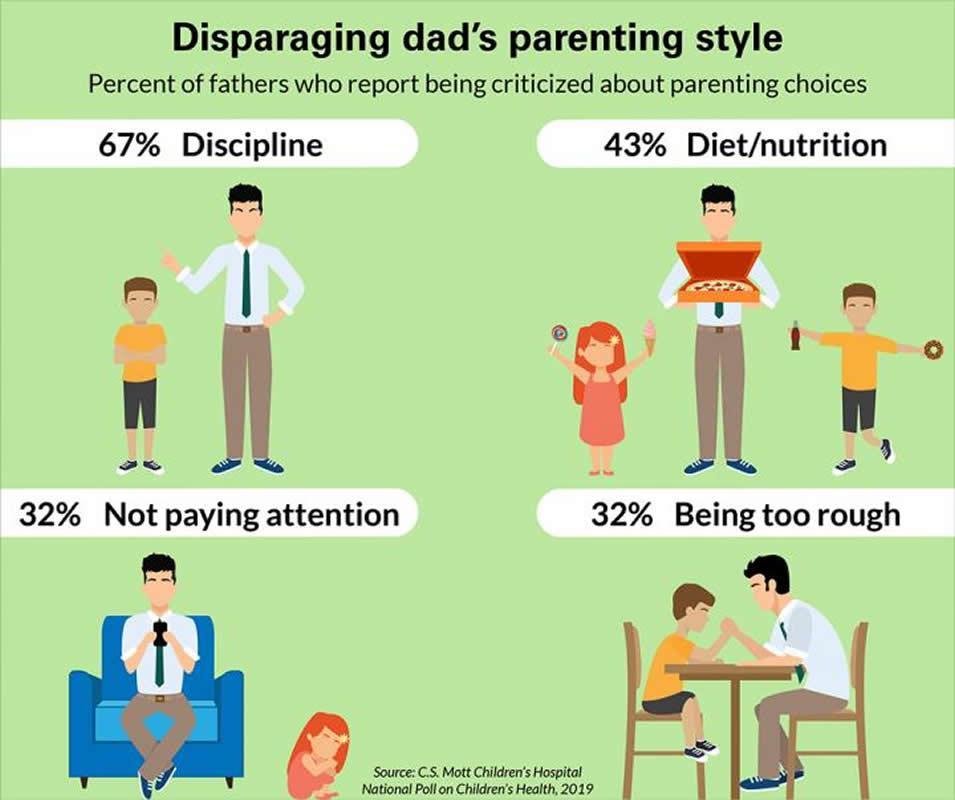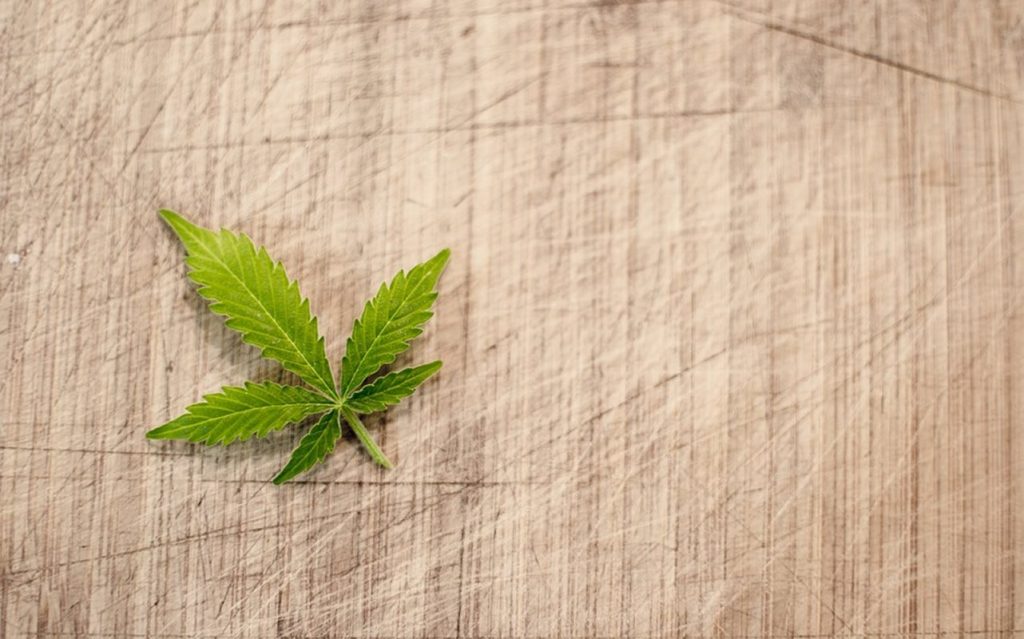One present some fathers might desire for Father’s Day: not being judged for their parenting style.
About half of dads in a brand-new nationwide survey state they have dealt with criticism and second-guessing about their parenting choices on everything from what they feed their kids to how they have fun with them.
And while numerous daddies say they react to criticism in a positive method, such as making a modification to some aspect of their parenting (49 percent) or looking for more info on the topic (40 percent), others had the opposite response, according to the C.S. Mott Children’s Hospital National Poll on Children’s Health at the University of Michigan.
For over a quarter of fathers surveyed, criticism made them feel less confident as a parent and 1 in 5 say it prevents them from being more involved in parenting. Lots of fathers (43 percent) likewise believe the criticism is frequently unjust.
The report is based on actions from a nationally-representative sample of 713 daddies of children 0-13 years of ages.
” Fathers who are caring and engaged can have a positive effect on their children’s advancement and wellness,” states poll co-director Sarah Clark, M.P.H.
” While some fathers say criticism prompts them to seek more details about great parenting practices, too much disparagement may trigger papas to feel demoralized about their parental role,” Clark says. “Family members– especially the other moms and dad– need to be willing to acknowledge that various parenting designs are not necessarily inaccurate or hazardous.”
Fathers usually felt slammed about how they disciplined a child, with two-thirds saying this was the top classification for parenting put downs, according to the report.
It’s not uncommon for parents to disagree over problems such as the age a child ought to be anticipated to follow specific rules or suitable repercussions for misbehavior, Clark says. But it’s one of the most crucial locations for moms and dads to discover common ground.
” Addressing a kid’s misbehavior is one of the greatest difficulties of parenting and parents aren’t constantly on the very same page when it comes to expectations and repercussions,” Clark states.
” Inconsistency between moms and dads in responding to a child’s habits can send out combined messages to the child, and result in conflict and criticism between parents.”
The 2nd top daddy shaming category was diet and nutrition, with 2 in 5 fathers stating they were criticized for what they fed their kids. Almost a 3rd of dads likewise felt judged for not paying enough attention to kids and an equivalent number stated they were informed they played too rough.
Other topics of criticism related to a kid’s sleep (24 percent), look (23 percent), and safety (19 percent).
And the most typical source of criticism frequently came from within the household– generally the other moms and dad (44 percent of the time.).
” In some instances, this might be a reflection of historical gender roles, where moms are deemed more natural caretakers, and dads as having actually limited parenting capabilities that need supervision or correction,” Clark says. “When this occurs, minor differences in parenting style can cause dispute over the ‘finest’ method to parent.”.
” Cultural standards, family dynamics and previous experience with his own dad can likewise shape a dad’s parenting style and influence the expectations of others,” she adds.
The exact same goes for criticism about being too rough or not focusing. While daddies might engage in more physical have fun with their children, moms, co-parents, or other grownups might view that the daddy is not sufficiently protecting the kid from injury.
Grandparents were the next biggest dad critics (24 percent), followed by dads’ own pals (9 percent).
9 in 10 fathers stated that a lot of daddies do a great task looking after their kids, according to the survey report. Still, some dads describe circumstances in which other grownups appear to discount their parental function: 11 percent have felt that a teacher assumed they were not experienced about their child’s requirements or habits, and 12 percent have actually felt that a doctor or nurse assumed they were not knowledgeable about their kid’s health.
Almost a quarter of fathers surveyed (23 percent) have likewise felt omitted from interaction about their child’s activities.
It’s essential that professionals and member of the family don’t make papas feel irrelevant when it comes to children’s lives, Clark says.
” Some dads say they feel that experts who communicate with their child are dismissive of their parental function,” she says.
” Even subtle types of disparagement can undercut daddies’ self-confidence or send the message that they are less important to their child’s wellness. Experts who work with children should avoid negative assumptions about dads’ level of involvement or interest in parenting.”.
Clark includes: “Family members should likewise be mindful of remarks or critiques that might make fathers feel like they do not understand how to moms and dad the ‘best’ method.'”.




